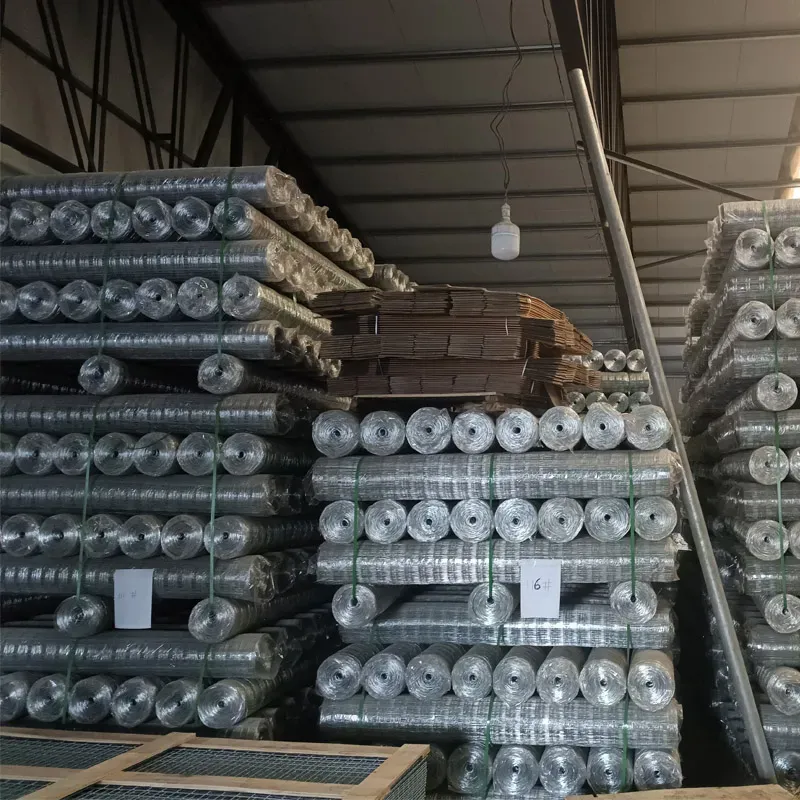Dez . 24, 2024 12:18 Back to list
field fencing wire
Field Fencing Wire A Vital Component for Livestock Management
When it comes to livestock farming, effective fencing is paramount for ensuring the safety and productivity of the animals. Field fencing wire, also known as agricultural fencing wire or livestock fencing wire, plays a crucial role in protecting livestock, marking property boundaries, and maintaining the overall integrity of a farm or ranch. This article delves into the types of field fencing wire available, its benefits, and considerations for selecting the right fencing solution for different agricultural needs.
Understanding Field Fencing Wire
Field fencing wire is primarily designed to confine livestock within a designated area while preventing wild animals from entering. The wire can come in various forms, including barbed wire, electric fencing, and woven wire. Each type has its unique properties, advantages, and ideal applications.
1. Barbed Wire Often used in ranching, barbed wire features sharp barbs at regular intervals. This type of fencing is effective for deterring larger animals and intruders due to the discomfort caused by the barbs. While it’s affordable and easy to install, barbed wire can pose risks to livestock if they become entangled.
2. Electric Fencing Electric fencing wires deliver a mild shock when livestock attempt to cross the barrier. This method is highly effective for managing animals that may be prone to escape. Electric fencing is versatile, allowing farmers to create temporary or permanent barriers. However, it requires a charger and regular maintenance to ensure the system is functional.
3. Woven Wire Woven wire fencing consists of horizontal and vertical wires woven together. It is generally more secure than barbed wire, making it suitable for keeping smaller animals in, such as goats or sheep, while keeping larger predators out. Woven wire fencing is durable and can withstand various weather conditions, making it a long-lasting fencing solution.
Benefits of Using Field Fencing Wire
The use of field fencing wire brings multiple benefits to livestock management
- Security A well-constructed fence helps to keep livestock safe from predators and theft, protecting both the animals and the investment made in them
.- Build Boundaries Fencing wire aids farmers in establishing clear property lines, reducing conflicts with neighbors and ensuring that livestock do not wander onto roads or neighboring properties.
field fencing wire

- Enhanced Grazing Management By using temporary fencing or subdividing larger pastures with electric fences, farmers can implement controlled grazing practices. This not only improves pastures but also promotes sustainable farming.
- Animal Welfare Proper fencing can help maintain the health and safety of livestock by preventing stress-related issues associated with escape attempts or confrontations with wildlife.
Considerations for Selecting Fencing Wire
When choosing the right type of field fencing wire, several factors should be taken into consideration
1. Type of Livestock Different animals have varying needs. Sheep and goats may require different types of fencing compared to cattle or horses. Evaluating the specific requirements of the livestock helps ensure effective containment.
2. Budget The cost of different fencing options can vary widely. While some materials may be cheaper initially, factors such as durability, maintenance needs, and longevity should factor into the overall cost.
3. Terrain The type of land and its geographical features play a major role in fencing choices. Rocky or uneven terrain might require more durable and flexible options like woven wire or electric fencing.
4. Purpose Understanding the primary purpose of the fence (e.g., containment, security, or boundary setting) helps in choosing the most appropriate fencing wire.
5. Maintenance Consider the maintenance requirements associated with different types of fencing. Barbed wire may require vigilant checks for breaks or tangles, while electric fencing needs an operational power source.
Conclusion
In conclusion, field fencing wire is an integral part of effective livestock management. By understanding the various types available, their benefits, and the factors that influence selection, farmers and ranchers can make informed decisions that contribute to the well-being of their livestock and the efficiency of their operations. Whether one opts for barbed wire, electric fencing, or woven wire, the right fencing solution can enhance livestock safety, cultivation practices, and property management, resulting in a thriving agricultural enterprise.
-
Weather Resistance Properties of Quality Roofing Nails
NewsAug.01,2025
-
How Galvanised Iron Mesh Resists Corrosion in Harsh Environments
NewsAug.01,2025
-
Creative Landscaping Uses for PVC Coated Wire Mesh Panels
NewsAug.01,2025
-
Common Wire Nail Dimensions and Their Specific Applications
NewsAug.01,2025
-
Choosing the Right Welded Wire Sheets for Agricultural Fencing
NewsAug.01,2025
-
Anti - Climbing Features of Razor Wire Barriers
NewsAug.01,2025









